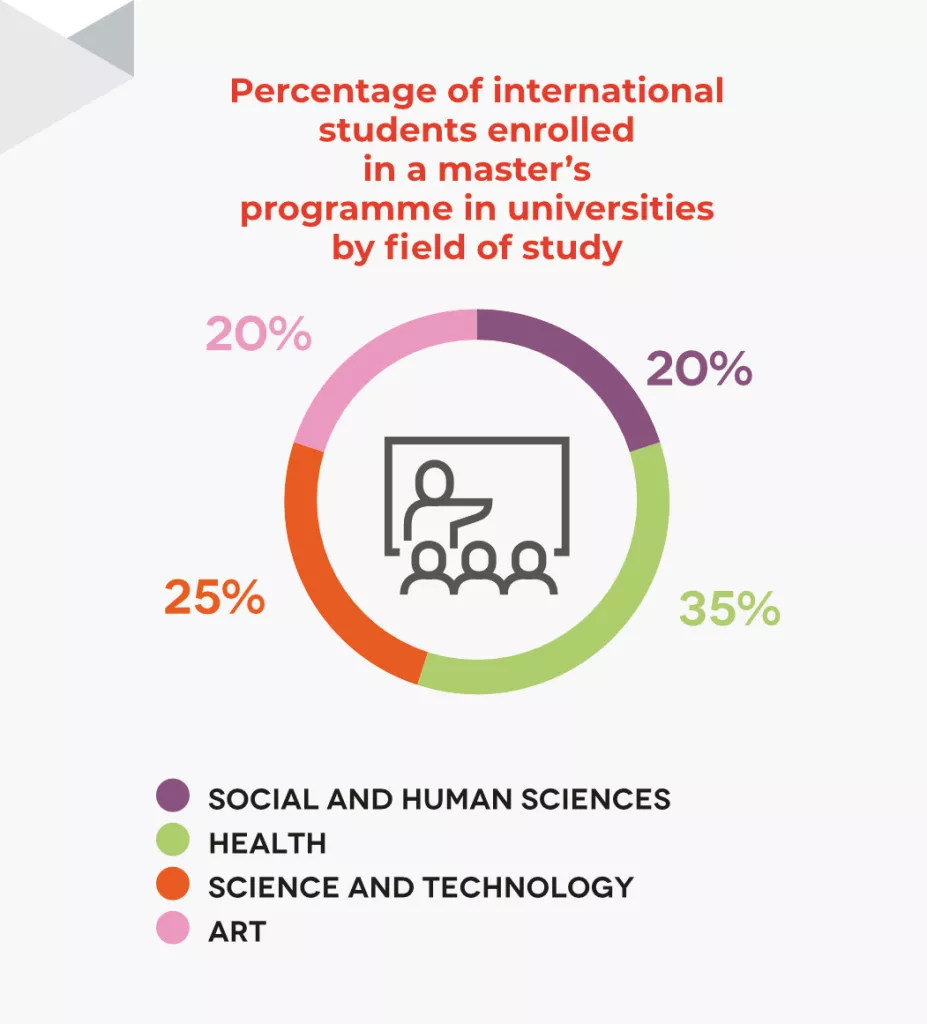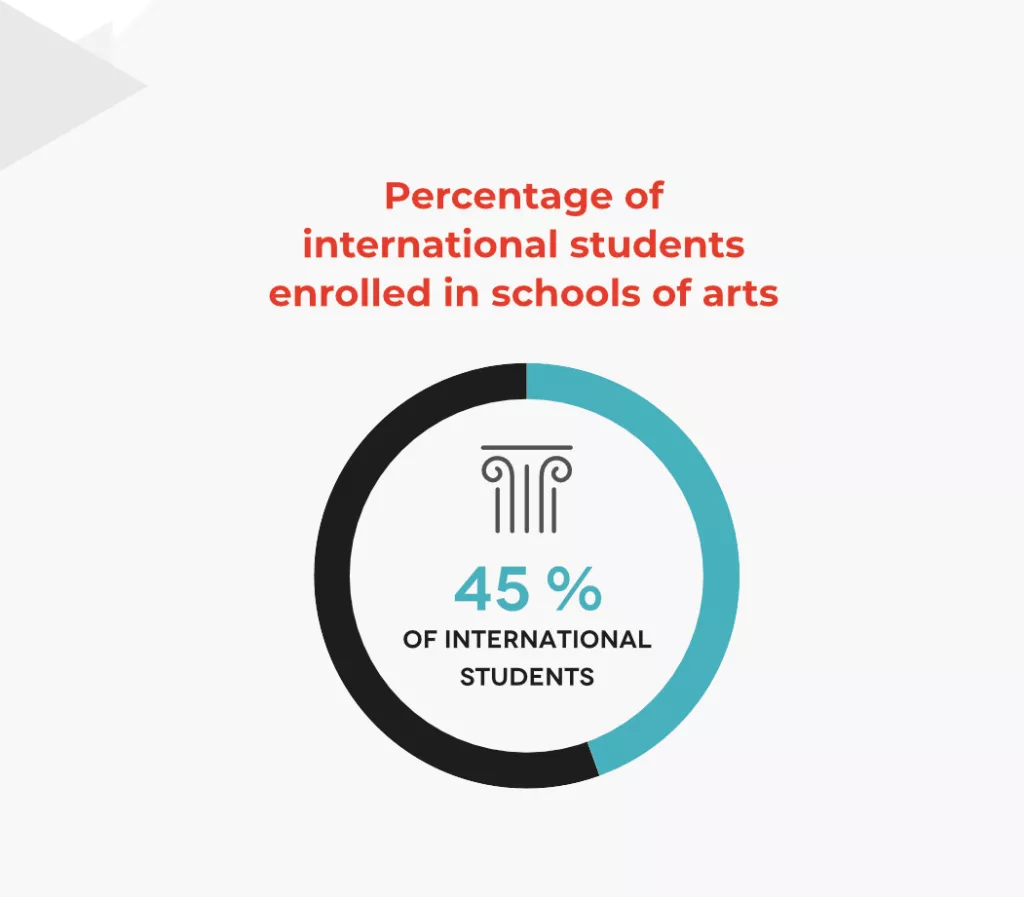

Practical guide for Canadian students

In French-speaking Belgium, study programmes are delivered in three different types of higher education institutions: universities, university colleges and schools of arts.
List of higher education institutions
- Université catholique de Louvain, https://uclouvain.be
- Université libre de Bruxelles, https://www.ulb.be
- Université de Liège, https://www.uliege.be
- Université de Mons, https://web.umons.ac.be
- Université de Namur, https://www.unamur.be
- Haute Ecole Albert Jacquard, https://www.heaj.be
- Haute Ecole Bruxelles-Brabant, https://www.he2b.be
- Haute Ecole Charlemagne, https://www.hech.be
- Haute Ecole Ephec, https://www.ephec.be
- Haute Ecole Francisco Ferrer, https://www.he-ferrer.eu
- Haute Ecole Galilée – IHECS, https://www.ihecs.be
- Haute Ecole ICHEC – ECAM – ISFSC, http://he-ichec-ecam-isfsc.be
- Haute Ecole en Hainaut, https://www.heh.be
- Haute Ecole Léonard de Vinci, http://www.vinci.be
- Haute Ecole libre de Bruxelles - Ilya Prigogine, https://www.helb-prigogine.be
- Haute Ecole libre Mosane, https://www.helmo.be
- Haute Ecole Louvain en Hainaut, https://www.helha.be
- Haute Ecole Lucia de Brouckère, https://www.heldb.be
- Haute Ecole de Namur-Liège-Luxembourg, https://www.henallux.be
- Haute Ecole provinciale de Hainaut – Condorcet, https://www.condorcet.be
- Haute Ecole de la Province de Liège, https://www.provincedeliege.be/hauteecole
- Haute Ecole de la Province de Namur, https://hepn.be
- Haute Ecole Robert Schuman, https://www.hers.be
- Haute Ecole de la Ville de Liège, https://www.hel.be
- Académie des Beaux-Arts de Tournai, http://www.actournai.be
- Académie royale des Beaux-Arts de la Ville de Bruxelles, https://www.arba-esa.be
- Arts², https://www.artsaucarre.be
- Beaux-Arts de Liège - École Supérieure des Arts, https://beauxartsdeliege.be
- Conservatoire royal de Bruxelles, http://www.conservatoire.be
- Conservatoire royal de Liège, https://www.crlg.be
- Ecole nationale supérieure des Arts visuels de La Cambre, https://www.lacambre.be
- Ecole supérieure des Arts de l’Image “Le 75”, https://leseptantecinq.be
- Ecole supérieure des Arts - Ecole de Recherche graphique, http://www.erg.be
- Ecole supérieure des Arts du Cirque, http://esac.be
- Ecole supérieure des Arts Institut Saint-Luc Tournai, http://stluc-sup-tournai.be
- Ecole supérieure des Arts Saint-Luc de Bruxelles, http://www.stluc-bruxelles-esa.be
- Ecole supérieure des Arts Saint-Luc de Liège, https://www.saint-luc.be
- Institut des Arts de Diffusion, http://www.iad-arts.be
- Institut national supérieur des Arts du Spectacle et des Techniques de Diffusion, https://insas.be
- Institut supérieur de Musique et de Pédagogie, https://www.imep.be
The universities
Theoretical and scientific education
Spread throughout the Wallonia-Brussels Federation territory, the French-speaking universities of Belgium offer their students quality education, which is divided up into four fields of study: science and technology, human sciences, health sciences and art.
Research at the heart of the French-speaking Belgian curriculum
In addition to an in-depth knowledge of the chosen subject, the universities of the Wallonia-Brussels Federation offer a solid general education, encouraging their students to take a scientific approach. This is why the focus is firmly on research, both basic and applied. This philosophy made the universities of French-speaking Belgium
institutions that are famous for the excellence of their research programmes and that have earned a remarkable reputation both in our country and beyond.
The university colleges
A practical and professionalising education
All the French-speaking university colleges of Belgium offer a quality education, which is closely linked to applied research, universities, and socio-professional environments. Contrary to universities, the teaching method adopted in university colleges is focused on the student and the work environment. The theoretical and conceptual aspects are nevertheless part of the programme, and a heavy focus is put on internships, which are mandatory. If you are looking for courses delivered in small lecture halls with regular work and practice, then a university college is what you need!
The schools of arts
Internationally recognised education in artistic techniques
Enjoying world renown, the schools of arts of the Wallonia-Brussels Federation educate all Belgian and foreign students who wish to perform arts and communication and broadcast technology; plastic, visual and spatial arts; music; theatre and dramatic arts.
Belgian degrees recognised in all Europe
How higher education works
In French-speaking Belgium, higher education is based on a system of three study cycles: the bachelor, the master and the doctorate. Each degree obtained gives you ECTS. The European Credit Transfer and Accumulation System (ECTS) is a tool for making studies and courses more transparent and it allows credits taken at one higher education institution to be counted towards a qualification studied for at another. ECTS represent learning based on defined learning outcomes and their associated workload. ECTS enhances the flexibility of study programmes, supports the planning, delivery and evaluation of higher education programmes, and aims to make education systems more comparable internationally. ECTS has been adopted by most of the European countries and is expanding worldwide.
Graduation (bachelor’s degree, master’s degree and PhD) is linked to the number of years of studies completed since entering higher education. Each year can award up to 60 ECTS (European Credits Transfer System), which can be used and transferred from one country to another.
- The 1st cycle degree (bachelor’s degree) represents 180 or 240 ECTS, namely 3 or 4 years of study.
- The 2nd cycle degree (master’s degree) represents 60, 120 or 180 ECTS, namely 1, 2 or 3 years of study.
- The 3rd cycle degree (doctorate) represents a variable number of ECTS.





 Québec
Québec
 Maroc
Maroc
 Chile
Chile
 Canada
Canada
 Brazil
Brazil